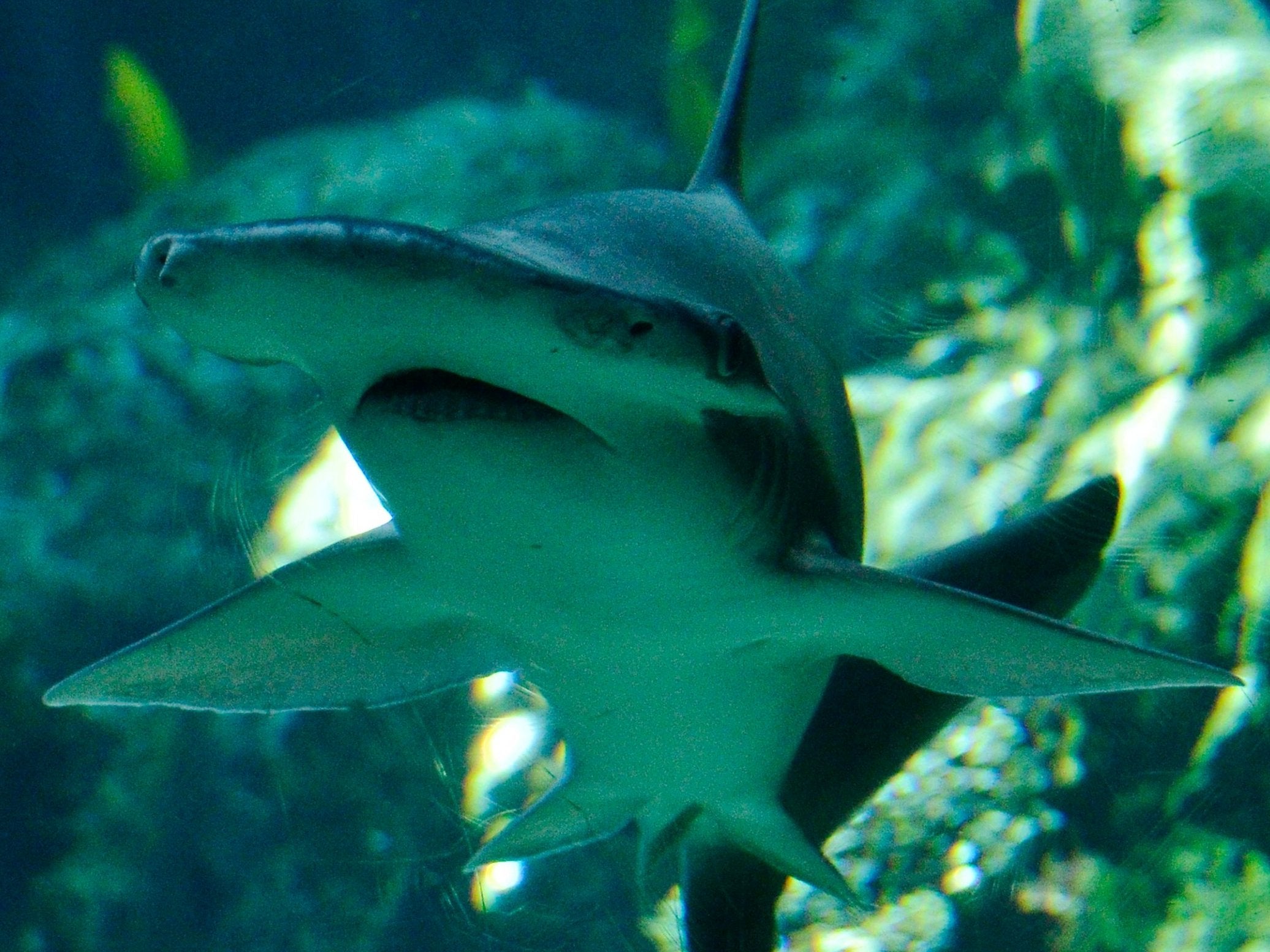Sharks can read Earth’s magnetic field like a map, study suggests
Bonnetheads – and likely other migratory species – appear to have built-in ‘polarity-based compasses’, reports Jon Sharman


Sharks are able to read the Earth’s magnetic field like a map while migrating over thousands of kilometres, a study suggests.
Researchers who experimented with bonnethead sharks found the fish responded to magnetic conditions designed to simulate those many kilometres south of their home environment by swimming “north” to correct their position.
“We know that sharks can respond to magnetic fields,” said marine policy specialist Bryan Keller, one of the authors. “We didn’t know that they detected it to use as an aid in navigation.”
He added that this study could help inform management of shark species, which are in decline. A study this year found worldwide abundance of oceanic sharks and rays had dropped by more than 70 per cent between 1970 and 2018.
The team caught 20 juvenile bonnetheads – a small hammerhead-type shark – in an attempt to understand how the fish are able to migrate over such vast distances with precision in order to feed and reproduce.
The sharks were captured off Florida, in the Gulf of Mexico, and placed in a pool inside a magnetic field generator used to simulate the conditions of their capture point and another point 600km to the south.
No significant change in behaviour was seen when the generator simulated their home environment, but when exposed to a field representing the more southerly location, the bonnetheads oriented themselves as if to swim back home.
Researchers wrote: “Our experiment provides evidence that sharks have a magnetic map that is used for orientation and that this ability may contribute to population-level processes.
“These findings complement recent research that has shown elasmobranchs [animals including sharks and rays] likely have a polarity-based magnetic compass.
“The combination of magnetic map and compass senses would likely be highly adaptive and allow the evolution of complex movement patterns that are a hallmark of elasmobranch life histories.”
The study authors wrote in Current Biology that the bonnetheads’ reliance on Earth’s magnetic field was likely shared by other kinds of shark which make cross-ocean voyages, such as great whites.
Sharks are not alone in their use of Earth’s magnetic field for navigation. Trout, salmon, lobsters, eels and sea turtles also employ magnetic map-reading, and it is thought that for salmon and turtles in particular the ability is innate, meaning they do not need to learn their migration route before undertaking it for the first time.
Nonetheless, despite a number of studies, “the (sub)cellular machinery responsible for transducing magnetic information to the nervous system remains enigmatic”, according to the authors of the bonnethead research.
Additional reporting by Associated Press
Join our commenting forum
Join thought-provoking conversations, follow other Independent readers and see their replies
Comments